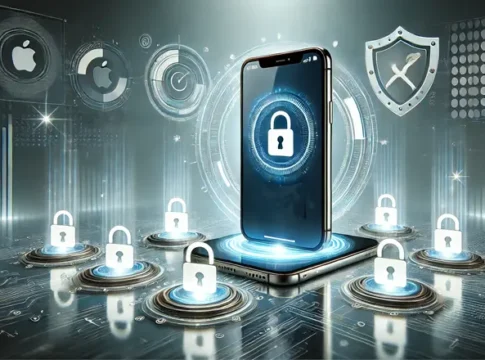Apple’s recent iOS 18.1 update introduces a security feature known as “inactivity reboot,” which automatically restarts iPhones that haven’t been unlocked for a specified period, enhancing device security. Initially set to seven days in iOS 18, this timer was reduced to three days with the iOS 18.1 release.
Understanding the Inactivity Reboot Feature
The inactivity reboot is designed to protect user data by transitioning the iPhone to a “Before First Unlock” (BFU) state after a reboot. In this state, the device requires a passcode to unlock, and data remains fully encrypted, making unauthorized access more challenging. This measure is particularly effective against forensic tools that attempt to bypass security protocols.
Implications for Law Enforcement and Security
While this feature enhances user security, it has raised concerns among law enforcement agencies. Devices in the BFU state are more resistant to forensic analysis, potentially hindering investigations that rely on accessing data from seized iPhones. Security experts note that this change underscores the ongoing balance between user privacy and investigative needs.
User Experience Considerations
For most users, the inactivity reboot operates seamlessly in the background, reinforcing device security without noticeable impact. However, it’s essential to be aware that if an iPhone remains locked and unused for three days, it will automatically restart, requiring a passcode upon the next use. This feature ensures that even if a device is lost or stolen, unauthorized access becomes significantly more difficult.
The new “inactivity reboot” mechanism is simple yet highly effective. If an iPhone remains idle for three consecutive days without being unlocked, the system will perform an automatic reboot. This places the device into a “Before First Unlock” (BFU) state, where only the passcode can decrypt the most sensitive data stored on the device. During this state:
- Biometric authentication methods like Face ID and Touch ID are disabled.
- Background data processing, such as notifications and updates, is limited.
- Encrypted files and sensitive data are locked until the user inputs their passcode.
Why It Matters for Security:
- Protection Against Physical Attacks: If a device is stolen or lost, the inactivity reboot reduces the risk of unauthorized access through brute force or forensic tools.
- Enhanced Encryption Standards: By forcing the device to reboot after a set period, Apple ensures that any attempts to bypass encryption without the passcode remain ineffective.
- Proactive Defense: Even if the user forgets about their phone for a few days, the feature ensures that the phone’s data remains safeguarded.
Real-World Use Cases:
- Theft Scenarios: If an iPhone is stolen and remains untouched for three days, the automatic reboot adds another layer of security, preventing attackers from leveraging unlocked states.
- Long-Term Idle Devices: Devices left unused due to travel or other circumstances automatically enhance their security posture without user intervention.
- Anti-Forensic Defense: Law enforcement and forensic experts often use tools to extract data from seized devices. By entering BFU mode, the feature disrupts such attempts, requiring explicit user cooperation to access the device.
Industry Reactions:
- Privacy Advocates: Many privacy advocates and organizations, including the Electronic Frontier Foundation (EFF), praise this move as a step forward in protecting users’ rights to data privacy.
- Criticism from Law Enforcement: Agencies argue that this feature hampers legitimate investigations, especially in cases involving criminal activities.
- Competitor Adoption: Other manufacturers like Google and Samsung are monitoring Apple’s implementation and may consider similar features for their devices to stay competitive in security.
Impact on User Behavior:
- Increased Passcode Use: Users may become more accustomed to relying on their passcodes, enhancing overall security habits.
- Awareness of Device Security: The feature educates users indirectly about the importance of maintaining encryption and locking mechanisms.
- Potential Minor Inconvenience: While secure, some users may find the reboot after three days inconvenient, especially if the phone needs to be accessed urgently.
Apple’s Vision for Security:
Apple has consistently prioritized user privacy and device security. This feature aligns with the company’s broader strategy to:
- Prevent unauthorized access.
- Empower users to control their data.
- Lead the industry in proactive security measures.
The “inactivity reboot” is part of a larger set of tools introduced in iOS 18.1, including improvements in app permission management, secure authentication updates, and enhanced encryption standards for iCloud backups.
Preparing for the Future:
With the digital landscape evolving, Apple’s innovation highlights the growing need for manufacturers to anticipate and counter emerging security threats. As quantum computing and advanced forensic tools become more prevalent, features like these set a precedent for future-proofing personal data.
In conclusion, while the three-day automatic reboot may seem like a minor tweak, its implications for data security, privacy, and user trust are profound. Apple’s commitment to safeguarding its users’ information continues to push the boundaries of what mobile devices can achieve in terms of security.

